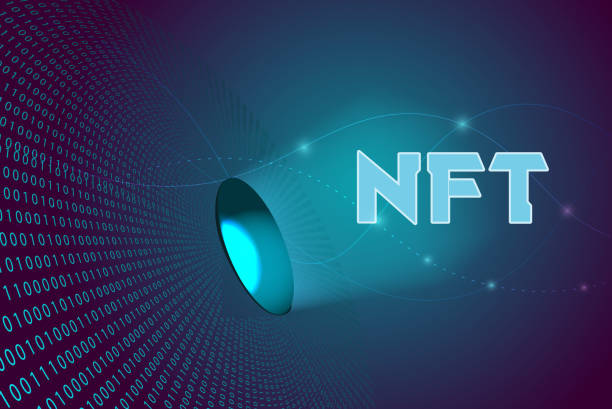What is an AI Assistant and What are its Applications?

#Artificial Intelligence Assistant (AI Assistant) is a software tool that uses artificial intelligence to perform various tasks, provide information, and interact with users.
These assistants can communicate with users via voice, text, or a combination of both.
The applications of AI assistants are extensive and include the following:
- Answering Questions: AI assistants can answer users’ questions on various topics.
- Performing Tasks: These assistants can perform tasks such as setting reminders, sending messages, playing music, and more.
- Providing Suggestions: AI assistants can provide suggestions on products, services, movies, music, etc., based on the user’s interests and needs.
- Automation: These tools can automate many everyday tasks, helping users save time and energy.
- Customer Support: AI assistants can act as an online customer support tool, answering customer questions and resolving their issues.
In general, AI assistants use machine learning algorithms and natural language processing to understand user needs and respond to them in the best possible way.
This technology is constantly evolving and is expected to play an even more significant role in our lives in the future.
Are you worried about losing customers because you don’t have a professional online store?
Forget those worries with online store design by Rasaweb!
✅ Significant increase in sales and visitor-to-customer conversion rates
✅ Professional and user-friendly design that earns customer trust
⚡ Get free consultation from Rasaweb
Different Types of AI Assistants

AI assistants can be categorized based on various criteria.
One of the most common methods of categorization is based on the type of platform on which the assistant runs.
Based on this, AI assistants can be divided into the following categories:
- Voice Assistants: These types of assistants interact with users through voice.
Examples of voice assistants include Siri, Google Assistant, Alexa, and Cortana. - Text Assistants: These assistants interact with users through text.
Chatbots are an example of text assistants. - Hybrid Assistants: These types of assistants use both voice and text methods to interact with users.
AI assistants can also be categorized based on their application.
Based on this, AI assistants can be divided into the following categories:
- Personal Assistants: These assistants help users with personal tasks such as setting reminders, sending messages, and more.
- Business Assistants: These assistants help companies with customer service, marketing, and sales.
- Educational Assistants: These assistants help students learn and complete assignments.
Choosing the right type of AI assistant depends on the user’s needs and goals.
Important Criteria for Choosing an AI Assistant

Choosing a suitable AI assistant requires careful consideration and examination of various criteria.
Here are some of the most important of these criteria:
- Capabilities and Features: Check what capabilities and features the assistant offers.
Can it answer your questions? Can it perform the tasks you want it to do? Is it compatible with the applications and services you use? - Accuracy and Precision: The accuracy and precision of the assistant’s answers and functions are very important.
An AI assistant that provides inaccurate information or does not perform tasks correctly can be very annoying. - Ease of Use: The assistant should be easy and convenient to use.
The user interface should be simple and understandable, and the process of setting up and using the assistant should be hassle-free. - Security and Privacy: Make sure the AI assistant protects your information and respects your privacy.
Check what the assistant’s privacy policy is and what measures it takes to protect your data. - Cost: Some AI assistants are free, while others require a subscription fee.
Consider the cost of the assistant based on your budget and needs. - Support: Make sure the AI assistant has adequate support.
If a problem occurs, you should be able to easily contact the support team and get help.
By considering these criteria, you can choose the best AI assistant for your needs.
| Feature | Description |
|---|---|
| Capabilities | Answering questions, performing tasks, suggestions |
| Accuracy | Correctness of information and performance |
| Ease of Use | Simple and convenient user interface |
| Security | Protection of information and privacy |
How to Use an AI Assistant

Using AI assistants is usually very simple and user-friendly.
Depending on the type of assistant, the method of use will be different.
For voice assistants, you usually have to say the assistant’s name (e.g., “Hey Siri” or “OK Google”) and then state your command.
For text assistants, you can enter your commands in typed form.
Some AI assistants also use a graphical user interface (GUI), which allows you to interact with the assistant using a mouse and keyboard.
To use an AI assistant effectively, keep the following points in mind:
- State your commands clearly and precisely: The clearer and more precise your commands are, the better the assistant can understand your meaning and respond correctly.
- Use appropriate keywords: Using appropriate keywords can help the assistant better understand your meaning.
- If necessary, use the assistant’s help: Many AI assistants have a help section that explains how to use the various features of the assistant.
- Be patient: AI assistants are still evolving and may not always be able to answer your questions correctly or perform the tasks you want them to.
With practice and experience, you can learn how to use an AI assistant effectively and benefit from its advantages.
Are you losing business opportunities because of an outdated website? With Rasaweb, solve the problem of not attracting potential customers through the website forever!
✅ Attract more high-quality leads
✅ Increase brand credibility in the eyes of customers
⚡ Get a free corporate website design consultation
Benefits of Using AI Assistants in Everyday Life

Using an AI assistant in everyday life can have many benefits.
Some of these benefits include:
- Saving Time: AI assistants can automate many daily tasks, helping you save time.
- Increasing Productivity: By using AI assistants, you can focus on more important tasks and increase your productivity.
- Easy Access to Information: AI assistants can help you find the information you need in the shortest possible time.
- Improving Quality of Life: With AI assistants, you can have an easier and more comfortable life.
- AI assistant gives you 24-hour access
In general, AI assistants can help you perform various tasks, access information, and improve your quality of life.
The Future of AI Assistants

The future of AI assistants looks very bright and promising.
With the increasing advances in the field of artificial intelligence, AI assistants are expected to offer more capabilities in the future and play a more important role in our lives.
Some of the important trends in the field of AI assistants include:
- Increasing Intelligence: AI assistants will become more intelligent in the future and will be able to better understand user needs and provide more accurate answers.
- Development of Multimodal Capabilities: AI assistants will be able to interact with users in various ways in the future, such as voice, text, image, and video.
- Personalization: AI assistants will be able to operate in a personalized manner based on the interests and needs of each user.
- Integration with Other Devices: AI assistants will be integrated with other devices and systems in the future, giving users easier control and management of devices.
In general, it is expected that AI assistants will become an integral part of our lives in the future and will play an important role in facilitating and improving our lives.
Privacy and Security in Using AI Assistants

Using AI assistants, like any other technology, comes with concerns about privacy and security.
AI assistants collect a lot of information from users to provide their services, including personal information, search history, location, etc.
This information can be misused if not properly protected.
To maintain privacy and security when using AI assistants, keep the following points in mind:
- Carefully read the assistant’s privacy policy: Before using any AI assistant, carefully read its privacy policy and make sure you agree with it.
- Configure the assistant’s privacy settings correctly: Many AI assistants allow you to configure your privacy settings.
Configure these settings correctly to prevent the collection of unnecessary information. - Be careful about the information you share with the assistant: Only share essential information with the assistant and avoid sharing sensitive information.
- Install security updates for the assistant: Install security updates for the assistant regularly to prevent security vulnerabilities.
By following these tips, you can protect your privacy and security when using AI assistants.
| Security Feature | Description |
|---|---|
| Data Encryption | Ensuring that information is encrypted during transmission and storage. |
| Two-Factor Authentication | Adding an extra layer of security for logging into the account. |
| Permission Review | Controlling the program’s access to device information. |
| Security Updates | Installing the latest updates to prevent vulnerabilities. |
Comparison of Popular AI Assistants

Currently, there are several AI assistants on the market, each with its own unique features and capabilities.
Here we compare some of the most popular AI assistants:
- Siri: Apple’s voice assistant available on iOS and macOS devices.
Siri offers various capabilities such as answering questions, performing tasks, providing suggestions, and more. - Google Assistant: Google’s voice assistant available on Android, iOS, and Google Home devices.
Google Assistant offers more extensive capabilities than Siri and is integrated with other Google services. - Alexa: Amazon’s voice assistant available on Amazon Echo devices and other compatible devices.
Alexa is very suitable for controlling smart home devices. - Cortana: Microsoft’s voice assistant available on Windows 10 devices.
Cortana offers various capabilities such as answering questions, performing tasks, providing suggestions, and more.
Choosing the right AI assistant depends on your needs and preferences.
Isn’t your online sales as good as you expect? With Rasaweb, solve the problem of low sales and poor user experience forever!
✅ Increase visitor-to-customer conversion rate
✅ Create an enjoyable user experience and increase customer trust
⚡ Act now to get a free consultation!
Challenges Facing the Development of AI Assistants

Despite the remarkable advances in the field of AI assistants, there are still several challenges facing the development of this technology.
Some of these challenges include:
- Natural Language Understanding: AI assistants still face problems in understanding human natural language.
For example, assistants may not be able to correctly understand the user’s meaning if they use slang terms or complex phrases. - Information Processing: AI assistants must be able to process large amounts of information quickly and accurately.
This requires advanced algorithms and high processing power. - Trust: Many users still do not trust AI assistants and refrain from sharing their personal information with them.
To gain user trust, it must be ensured that AI assistants protect user information and respect their privacy. - Bias: AI assistants may make discriminatory decisions due to bias in training data.
To prevent this, training data must be carefully selected and AI algorithms must be designed to prevent bias.
Addressing these challenges requires the effort and cooperation of researchers, developers, and policymakers.
Key Tips for Choosing and Optimally Using an AI Assistant
![]()
To choose and optimally use an AI assistant, keep the following points in mind:
- Identify your needs: Before choosing an assistant, carefully identify your needs.
What expectations do you have of the assistant? What tasks do you want to assign to the assistant? - Do your research: Before buying, research different assistants and compare their features and capabilities with each other.
- Try the trial version: If possible, try the trial version of the assistant to make sure it meets your needs.
- Install updates: Install software updates for the assistant regularly to benefit from the latest features and improvements.
- Use support: If a problem occurs, use the assistant’s support.
By following these tips, you can choose the best AI assistant for your needs and use it effectively.
AI assistant helps you.
FAQ
| Question | Answer |
|---|---|
| What is an AI assistant? | An AI assistant is a software program that uses artificial intelligence to perform various tasks for users, such as answering questions, setting reminders, playing music, and managing calendars. |
| What are some of the most famous AI assistants? | Some of the most famous AI assistants include Apple’s Siri, Google Assistant, Amazon’s Alexa, and Microsoft’s Cortana. |
| How does an AI assistant work? | These assistants use Natural Language Processing (NLP) to understand user voice or text commands, and Machine Learning to improve performance and personalize responses. |
| What are the main applications of AI assistants? | Main applications include setting alarms and reminders, playing music and podcasts, answering general questions, sending messages, making calls, controlling smart home devices, and providing weather or traffic information. |
| Can AI assistants speak in different accents? | Yes, many modern AI assistants have the ability to recognize and generate speech with different accents and languages. |
| What are the differences between an AI assistant and a chatbot? | AI assistants are usually more comprehensive and can perform various tasks beyond answering text questions (such as controlling devices). Chatbots are designed more for text conversations on websites or messaging apps. |
| Is it safe to use an AI assistant? | Companies strive to ensure data security, but there are concerns about privacy and voice data storage. Users should review their privacy settings. |
| What will the future of AI assistants be like? | It is expected that in the future, AI assistants will be smarter, more predictive, and have greater integration with daily life and other devices, and will be able to perform more complex tasks. |
| How can I activate an AI assistant? | They are usually pre-installed on smartphones and smart home devices. You can activate them by saying “Hey Siri,” “Ok Google,” or “Alexa,” and then give your command. |
| Can AI assistants help me learn? | Yes, it can help in learning by providing information, defining words, translating texts, and even solving math problems. It can also play educational podcasts for you. |
And other services of Rasa Web advertising agency in the field of advertising
Smart customer journey map: A creative platform to improve online growth by optimizing key pages.
Smart brand identity: Designed for businesses looking to grow online through the use of real data.
Smart direct marketing: Designed for businesses looking to improve SEO ranking through proprietary programming.
Smart brand identity: A combination of creativity and technology to increase click-through rates by using real data.
Smart SEO: Designed for businesses looking to increase sales through Google ad management.
And more than hundreds of other services in the field of internet advertising, advertising consulting and organizational solutions
Internet Advertising | Advertising Strategy | Advertorial
Resources
Choose the Right Smart Assistant for Your Needs
,Reviewing ChatGPT Alternatives: Which AI Assistant is Right for You?
,Which is the Best AI Assistant?
,10 Tips for Better Use of Artificial Intelligence
? Are you ready to boost your business in the online space? Rasaweb Digital Marketing Agency offers comprehensive solutions including Professional Website Design, SEO, and Content Marketing, paving the way for your success.
📍 Tehran, Mirdamad Street, Next to Central Bank, Kazeroon South Alley, Ramin Alley No. 6




